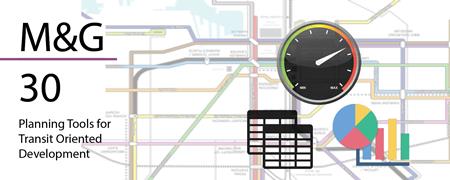Building Diversified Communities
Best practice: TOD Financing Strategies
While TOD offers many benefits, conventional real estate financial tools and development appraisal methods may not be favorable to TOD due to its mix of uses and lower parking ratios. If TOD projects occur in areas without infrastructure or with aging utilities, they often require costly public infrastructure improvements and amenities. Public-private partnerships are often used to finance TOD-related projects, and Maryland’s Tax Increment Financing (TIF) legislation provides a viable funding mechanism.
The following financing approaches can be used to build TOD projects.
Tax Increment Financing (TIF) for TOD
In 2009, Maryland amended its tax increment financing laws to enable local governments with a Maryland Department of Transportation (MDOT) designated TOD more flexibility and opportunity to use TIF and special taxing district bonds to finance TOD infrastructure, including capital costs, infrastructure operations and maintenance costs. The law allows local governments with a designated TOD to pledge alternative local tax revenues generated within or attributed to the TIF district to the development district’s special fund.
The law also authorizes the use of Maryland Economic Development Corporation (MEDCO) bonds for TIF and special taxing districts, allowing local governments to use MEDCO’s bonding authority to fund infrastructure improvements rather than issuing their own bonds. In one scenario, MEDCO could own and operate TOD facilities, like a parking garage, and have the TIF district and special taxing district funding ensure payment of the operating and maintenance costs during the early phases, when cash flow may be limited. The funds collected could be used to cover not only the debt service on the MEDCO bonds, but also the shortfall in operating expenses. Learn more about Maryland’s TIF law in MDP’s User Guide for Maryland Sustainable Community Revitalization.
By June 2012, Maryland had designated 15 TODs for priority state support; three are considering TIF as part of their financing packages. The Savage Towne Centre in Howard County, a designated TOD site as well as a BRAC zone, intends to fund a 704-space parking structure by issuing $17 million in TIF bonds. Baltimore County approved $135 million in TIF funding for infrastructure improvements around the metro center in Owings Mills. The Odenton MARC station in Anne Arundel County, a designated TOD site and BRAC zone, is considering using TIF to help fund infrastructure for a mixed-use development project that includes 75,000 square feet of retail space, a hotel, 570 apartment and condominium units, 250 townhomes and two commuter parking garages.
Special Taxing District for White Flint TOD

North Bethesda Market in White Flint is two blocks from Metro’s Red Line.
The White Flint Partnership, an alliance of property owners along MD355/Rockville Pike in Montgomery County, agreed to be part of a special taxing district to fund improvements to the Pike and related streetscape. The group, comprised of large landowners who are redeveloping aging strip malls as well as the landmark White Flint Mall, wants to improve access to the Metro and a planned bus rapid transit line in the corridor. The goal: to transform a car-centric, unattractive streetscape into a desirable environment for existing and future residents.
With the partnership’s support, the Montgomery County Council approved a special taxing district in 2011 that levies an ad valorem property tax to fund transportation infrastructure improvements. The tax, which applies to all property owners within the White Flint Sector Plan area except existing residential uses, requires a 10 cents per $100 of assessed value, totaling $7 billion over 40 years. The dedicated revenue source for the county will fund improvements to Rockville Pike, as well as smaller projects on secondary roads, to provide a network grid to improve local access and enhance pedestrian safety.
TOD Best Practices: Building Diversified Communities
